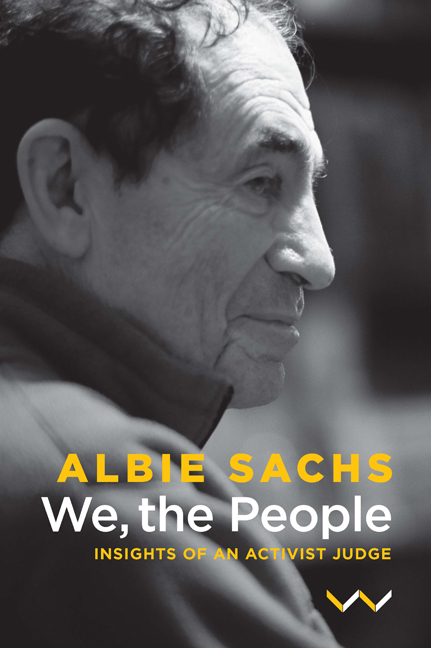Book contents
- Frontmatter
- Acknowledgements
- Miscellaneous Frontmatter
- Contents
- Figures
- Introduction
- 1 In the Beginning
- 2 Hope and Caution in Exile
- 3 We Have to Mistrust Ourselves
- 4 Inventing A Constitution
- 5 With Clean Hands and Without Secrets
- 6 Reconciling the Past and the Future
- 7 Living Constitutional Law and Ubuntu
- 8 More than Crumbs from the Table: Enforcing Social and Economic Rights
- 9 Struggle Continues
- 10 Are the Beautiful People Born?
- Cases Cited
- Sources
- Index
- Frontmatter
- Acknowledgements
- Miscellaneous Frontmatter
- Contents
- Figures
- Introduction
- 1 In the Beginning
- 2 Hope and Caution in Exile
- 3 We Have to Mistrust Ourselves
- 4 Inventing A Constitution
- 5 With Clean Hands and Without Secrets
- 6 Reconciling the Past and the Future
- 7 Living Constitutional Law and Ubuntu
- 8 More than Crumbs from the Table: Enforcing Social and Economic Rights
- 9 Struggle Continues
- 10 Are the Beautiful People Born?
- Cases Cited
- Sources
- Index
Summary
To know the taste of an avocado pear you have to cut it in half. I'm reminded of this statement of Samora Machel's as I turn these pages. Decades ago, when I arrived in newly independent Mozambique, Samora would say that only when you let all the contradictions come out will you resolve problems in an open and principled way. Three contradictions in this book stand out for me.
Contradiction number one is personal and amusing in an ‘Only in South Africa’ kind of a way. My relationship with former apartheid president FW de Klerk had always been distant. When I was told that, in the Government of National Unity, he had bitterly opposed Mandela selecting me as one of the justices on the Constitutional Court, I was not surprised. Yet, early this year when I was asked to speak at a conference on multi-culturalism in South Africa organised by the FW de Klerk Foundation, I accepted. Our Constitution belongs to everyone. And if I speak about it to trade unionists, community organisations, faith groups, schoolchildren, student activists and NGOs, so should I engage with the multiple foundations that South Africa has produced.
When I arrived at the venue I was greeted warmly and spontaneously by Elita de Klerk, but more restrainedly with a stiff handshake and correct smile by the former president. Maybe it was the challenge of addressing an audience invited by his foundation that caused me to speak with special emotion about the crucial but virtually unknown role played by Oliver Tambo in establishing the foundations of our Constitution. I went on to pay particular attention to how, in the ANC, we had dealt with the manner in which the Constitution should protect Afrikaans as one of eleven official languages, an issue of some controversy in schools and universities today. I mentioned that my contact as a child with Afrikaans speakers had been most positive. In Cape Town it had been with the poet Uys Krige and the artist Gregoire Boonzaier, both lively, progressive and full of fun. In Johannesburg it had been with people like Johanna and Hester Cornelius, both members of the Garment Workers Union of which my father, Solly Sachs, had been the general secretary, and both lively, progressive and full of fun.
- Type
- Chapter
- Information
- We, the PeopleInsights of an Activist Judge, pp. 1 - 6Publisher: Wits University PressPrint publication year: 2016

